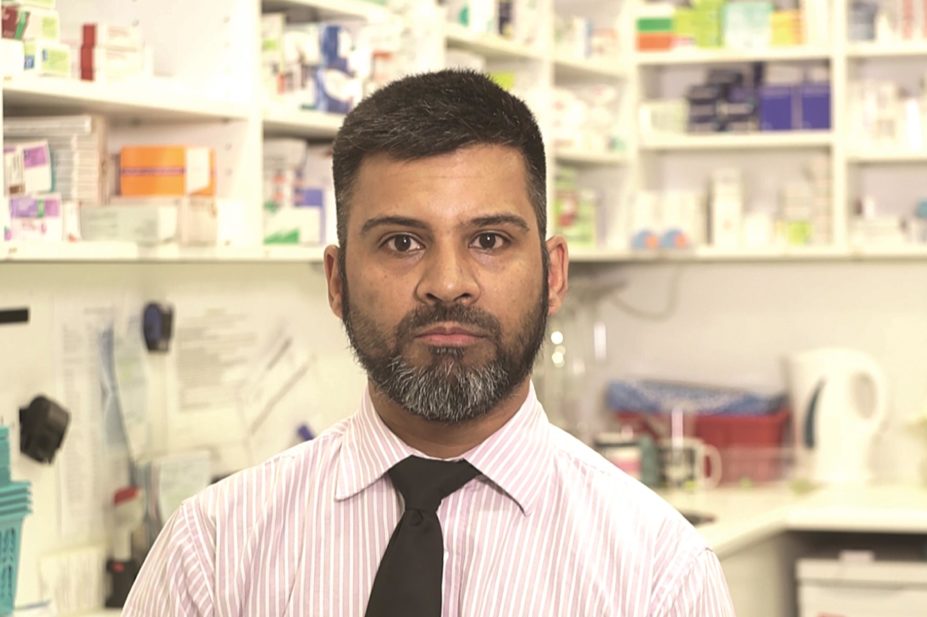
Medical Information for Ethnic Minorities (MIEM.org.uk)
Lord Carter’s final review of English NHS acute hospitals, published on 5 February 2016, highlights variation in the number of prescribing pharmacists in hospitals and the total cost of pharmacy and medicines across acute trusts. The review estimates that £5bn could be saved across NHS acute hospitals, £800m of which should come from pharmacy. As principal pharmacist lead for education and development at Guy’s and St Thomas’ hospital, Aamer Safdar explains the implications of these efficiencies.
What are the main points in the Carter review?
The most important messages in the review are that there needs to be more clinical pharmacists and clinical pharmacy technicians with a greater focus on outcomes and better care for patients. They should have a bigger role in patient care — as part of a team and independently, and there should be more innovation and less variation of services. It also says there needs to be an even bigger drive to get electronic prescribing and administration and digital medicines working. One of the key phrases in the report is “hospital pharmacy services and the optimisation of medicines are intrinsically interwoven and, from a value perspective, can’t be separated”.
What impact will the review have on hospital pharmacists who currently deliver infrastructure services rather than clinical services — will their roles potentially be outsourced?
The report recognises that there is a stark variation in infrastructure services across pharmacy departments, that there is unwarranted duplication and that historically evolved systems are not necessarily innovative anymore. It does not say that these services are not required, done badly or not valued but that they could be delivered more efficiently through collaboration and sharing of best practice across the NHS. Some of these services may not need to be delivered by NHS staff. Supply of medicines to patients is one such example.
Is the estimated £800m efficiency savings a realistic target? Is there evidence that trusts need to tighten up the management of their resources?
In this current financial climate there is a need for everyone in the NHS to tighten up their resources and remove, or reduce, non-value adding activities. The NHS has recently undertaken a benchmarking exercise comparing hospitals and hospital pharmacy services, which will act as an opportunity to identify potential resource savings and other efficiencies. The Hospital Pharmacy Transformation Programme (a recommendation in the review to ensure trusts implement the recommendations) will act as an enabler to develop cost effective clinical services; the report states that there is scope for improving supply chain management at local, regional and national levels to help achieve ‘model hospital’ benchmarks such as for stock holding of medicines.
How about the statement that £2bn could be saved through workforce productivity – do you agree that more needs to be done to improve staff engagement across the NHS?
It is absolutely critical that all staff in the NHS are fully engaged with the financial challenges faced by hospitals and the pressure to continue to provide quality services for our patients. Staff engagement is important so that those everyday ideas that make small savings, can be scaled up across different areas of the service – these are just as important as the bigger changes that managers often think about first. The review recommends that transformational change can be planned more effectively, managed and sustained in all trusts through better staff engagement and improved leadership capabilities from top to bottom.
What are your thoughts on the idea of outsourcing outpatient dispensing services and implementing large-scale centralised dispensing?
Outsourcing outpatient dispensing services is already happening in some hospital pharmacies. Centralised dispensing is an idea worth considering as long as patient care is not compromised, for example by increasing the length of a hospital stay while waiting for medicines to arrive from the central facility. There are potential economies of scale that could be realised through centralised dispensing but careful thought will need to be given depending on local geographies to ensure that there is no impact on timely patient discharge from the hospital.
Given what has happened in community pharmacy with regard to funding cuts, are you concerned something similar could hit the NHS?
Funding cuts in the NHS have been around for a few years now with many hospitals being faced with ‘cost improvement plans’ which are challenging. Hospital pharmacy managers are accustomed to being faced with year-on-year cuts while continuing to provide patient centred services. The hospital pharmacy transformational programme will act as a lever to ensure greater use of clinical pharmacists as independent prescribers and thus allow the growth of clinical pharmacy technicians. It also provides an opportunity to reduce variations further through more accurate coding of medicines and greater use of technology to realise greater efficiencies.
Will the proposed community pharmacy cuts affect hospital discharges?
The community pharmacy cuts will undoubtedly affect the network of community pharmacies in England. The Department of Health’s proposals for change in community pharmacy states that “pharmacists’ skills make them invaluable to patients and the public, but too often those skills are not used effectively, resulting in avoidable hospital admissions, medicines wastage and subâ€optimal care”. Increasing the clinical role in community pharmacy will result in better transfers of care in and out of hospitals and could enable pharmacists in the community to manage patients so that they do not have to go to see their GP or emergency care centres unless absolutely necessary. This could result in better integration of pharmacists in the community with the wider NHS and more opportunities for medicines optimisation in the community by making better use of the expertise of pharmacists.

